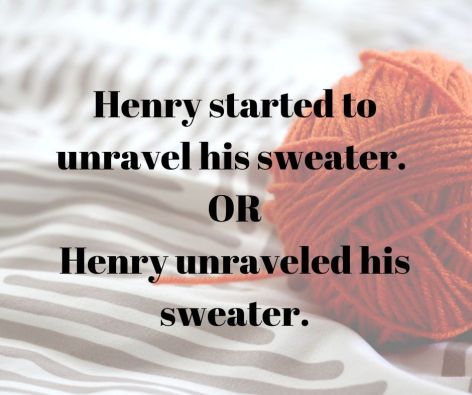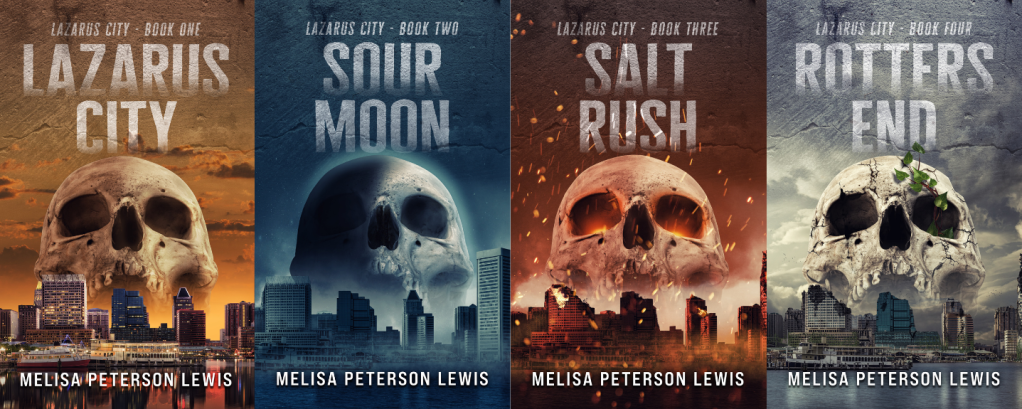A few months ago I purchased ProWritingAid to help teach me basic grammar flaws I’ve been falling victim to. While there are quite a few grammar no-nos I’ve been doing, one that sticks out is my need to tell readers when a character is starting to do something, rather than just tell ya’ll that they’re doing it.
Example: Henry started to unravel his orange sweater.
Now, this isn’t always the case, but most of the time I find that this works a little better.
Better: Henry unraveled his orange sweater.
To me, this creates a sense of urgency for Henry. He’s in a hurry to unravel his sweater. By saying he started to unravel his sweater the pace slows down. Readers anticipate something to come during the process of unraveling his sweater. In my example, there is nothing important to report in between Henry starting to unravel his sweater and Henry unraveling his sweater.
When I write I do my best not to nitpick grammar as I go. Therefore, when I go back to review I find a lot of words can be removed. The phrase “started to” being one I often pick off.
Three other big culprits include that, like, and just.
That, like, just isn’t fair! I sound like my thirteen-year-old self trying to reason with my parents. No worries, that’s what the editing process is for. Fortunately the more I write, the more I recognize my own flaws, and I use them less often. This makes editing a lot quicker and not as painful.
Tell me what you prefer. I’m not an editor, I haven’t even published my first book. I could be completely off here!

Photo by Philip Estrada on Unsplash






Leave a comment